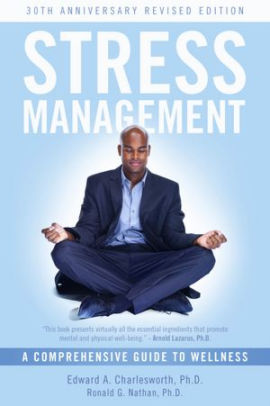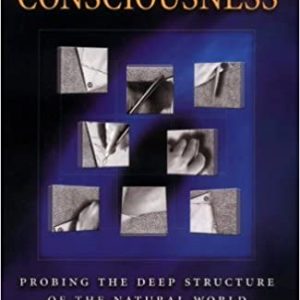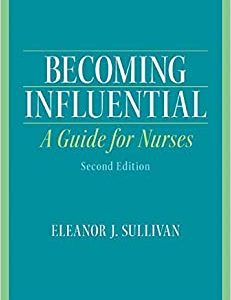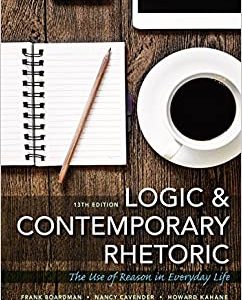This is the 30th Anniversary edition of the book that started the revolution in stress management and wellness. We live in an age of anxiety, a century of stress and an era of terrorism. Today, 95 million Americans suffer from stress. STRESS MANAGEMENT: A Comprehensive Guide to Wellness (Ballantine Books Trade Paperback and BookBaby eBook) helps identify the specific areas of stress in our lives ? familial, work-related, social, emotional ? and offers proven techniques for dealing with every one of them. The benchmark of stress management guides since its publication in 1982, these new editions of STRESS MANAGEMENT also feature updated information on how men and women differ in response to stress, statistics on disorders and drugs, the ways that terrorism and the information age impact stress, and the key benefits of spirituality, alternative medicine, exercise, and nutrition.
Additionally, STRESS MANAGEMENT can help you to:
Test your personal responses to daily stress ? and chart your progress in controlling it.
Learn specific techniques for relaxation ? from ?scanning? to ?imagery training?.
Discover how to deal with life?s critical moments without stress.
Embark on a program to improve your physical health as a major step toward stress management.
Discern which types of stress must be reduced and which kinds you can turn into positive motivation.
With a wealth of practical advice everybody can use to immediately reduce the presence of stress in their life, STRESS MANAGEMENT is a valuable resource to help lead a productive, healthy, and happy life.
From the Preface
Over thirty years ago we wrote the first book to use the term ?stress management? outside of structural engineering. The winds of change blustering through every area of life then, bit they are now approaching hurricane force. Such dramatic change is inherently stressful. In response, self-help books have exploded from a handful about stress reduction to over 2,000 listed under ?stress management? as a subject heading on Internet bookstores.
We consider it an honor that our general readers have kept the editions of this book in continuous demand for over three decades and that medical and nursing schools, as well as colleges and universities, continue to use it as a resource to train future generations of health care professionals. It is indeed a privilege to share what we knew then and what we have learned both personally and professionally over the last thirty years.
We believe that people want to do more with their lives than merely cope with the overwhelming costs of ever-mounting stress. They are seeking the newest and most effective ways of taking control of their lives, preventing disease, and enhancing their well-being. Those who are successful seem comfortable in almost any situation. Their lives are full and yet unhurried. They look relaxed and confident, even when they are making critical decisions or meeting important people. Physically fit and seldom tired, they project a sense of optimism and quiet strength. They are also preventing the very diseases that pose some of the greatest challenges to modern medicine.
More and more twenty-first century illnesses have been shown to be related to the ?lifestyles of stressed and harried.? These lifestyles often include overeating, under-nourishing, smoking, drinking in excess, under-exercising, hurrying, and worrying about everything from work to world crises. It is estimated that as many as 75 percent of all medical complaints are stress-related. The list of these disorders is long and still growing: migraine and tension headaches, high blood pressure, rapid and irregular heartbeats, immune dysfunction, insomnia, back pain, muscle aches, and skin disorders, as well as many psychiatric disorders.
?Clearly, if disease is man-made, it can be man-prevented.?
_Dr. Ernst Wunder, President, American Health Foundation
We are all grateful for the advances in medical technology. It was unimaginable when the first edition of this book was written that major surgery using microscopic instruments and tiny incisions could be performed in virtual reality by a robot, lasers could correct our vision, and new devices could scan our bodies for disease. When the Human Genome Project mapped our DNA, the potential for preventing and treating disease expanded enormously. It is a wondrous time of scientific advances.
But designer drugs for disease, incredible surgical procedures, and genetic or molecular modifications of tissue are all colliding with the reality of skyrocketing healthcare costs, and the need for prevention. The challenge is still to find, promote, and maintain lifelong skills to replace pills.
Our goal is to help you achieve maximum well-being and enjoy a richer and more rewarding lifestyle. Many of our patients come to us for psychosomatic problems and leave, not only symptom-free, but with a far greater sense of self-confidence, self-esteem, and involvement in life. They are no longer the victims of stress but victors over stress.
This book provides ways to assess your stress so that you can begin to understand and change your response to stress. In this way, your stress response can be used in creative ways to make use of energy that would otherwise be lost through distress and disease.
We will present techniques that can be learned through self-guided exercises in a short period of time. To this end, we have provided self-assessment forms, charts, and case examples. Part of this book will help you to establish goals and rehearse their attainment.
Through a series of muscle relaxation exercises, we will teach you how to be more relaxed in even the most stressful situations. To augment these more conventional biobehavioral approaches to relaxation, we have added a chapter about mind-body fitness to promote physical and mental relaxation.
In addition, you will find a new chapter on complementary and alternative medicine (CAM) approaches to stress management. These models may optimize stress management by fostering wellness as a state of balance between the spiritual, physical, and mental/emotional ?selves.?
In these pages, you will learn how to overcome fears or phobias and reach out for experiences you might otherwise avoid. Furthermore, we want you to find new and rewarding goals, such as those of Dag Hammarskjold, a past secretary-general of the United Nations, who wrote, “If only I may grow firmer, simpler, quieter, and warmer.”
?For every minute you are angry, you lose sixty seconds of happiness.?
– Ralph Waldo Emerson
In another part of this book, you will learn the hazards to your heart of anger-inducing, time-urgent living and get an update on the Type A personality. We will also introduce you to a Type C personality, one that is very productive and free of the harmful stress effects from the driven and angry Type A personality.
Our earlier editions reflected the many stresses of dual-career couples and the changing roles of men and women, but health psychologists did not discover the gender differences in the stress response itself until recently. This editions is among the first self-help books to present these exciting new findings.
Our time management section has been brought up-to-date by adding a chapter about the use of computers, PDAs, wireless communication, and the Internet to help us manage the times of our life. Our goal is that you will be able to increase work productivity and also have more quality time for family and recreation. Again, the goal is to enhance not only your health but also your life.
In the section ?Planning the Days of Your Life? we have also included a chapter on laughter and leisure. The research of the last decade has clearly established the importance of our ability to play and enjoy humor in strengthening our immune system and protecting us from the harmful effects of stressful living.
?All of the animals, excepting man, know that the principal business of life is to enjoy it.?
– Samuel Butler
–
We have outlined the latest findings and guidelines for exercise and nutrition, but more important, we have shared how to begin making them a permanent and pleasurable part of your lifestyle. We hope you will learn enjoyable ways of more fully developing and maintaining your body. Doing so may well add years to your life and most certainly will add life to your years.
?Health can be squandered, but not stored up.?
– Mason Cooley
Another part of this book will help you learn about assertiveness training. Too often we clamp a lid on our true feelings until we are ready to explode. Assertiveness training provides new skills for expressing yourself to others honestly and without intimidation or confrontation.
?I wish you?d stop yelling, I can?t hear myself shout.?
– John Osborne
To update this book, we have introduced several new concepts and tools for understanding and managing stress, but stress remains multifaceted, and a comprehensive approach remains the most powerful way to manage it.
When personal changes and stress are both intense and prolonged, depression is a common result. The acceleration of change in so many areas of life is one of the reasons depression is more common than ever. To help you understand, prevent, and lift depressed feelings, we have added a new chapter about depression.
?Life is like playing a violin solo in public and learning the instrument as one goes on.?
– Samuel Butler
We have expanded the section on special sources of stress. Recent world events have led to frequent and sustained trauma and terror. Appearing nightly on our living room screens, those events affect everyone empathically. These horrifying changes called for a chapter about acute and post-traumatic stress disorders. This last decade has seen the greatest economic and job-related stress since the Great Depression. In response, we have added chapters about money stress and job stress, major source of stress in many of our lives.
Some psychologists have proposed that happiness involves having more pleasant thoughts and images than unpleasant ones. Abraham Lincoln foretold this when he said, ?People are about as happy as they make up their minds to be.? If this is true, then happiness is available to each and every one of us at almost any time. We cannot and would not want to promise you unending bliss, but this book will help you learn new, healthier ways of perceiving and dealing with events.
?Happiness is an inside job.? ? John Powell
We have collected stress management quotes for many years. We were delighted when the West Coast Review of Books praised our first edition, emphasizing, ?The authors have completely avoided the use of psychobabble and technical jargon, opting instead for quotes?witty, relaxed yet disarmingly effective.? Shortly thereafter, we began calling these quotes ?copelets? because each one briefly, poetically, and powerfully expresses the essence of a valuable strategy with which to cope.
For most of us, coping is just surviving in an increasingly stressful world. For some psychologists, however, coping represents the most effective of ego processes. Coping allows the person to handle events realistically and flexibly in such a way as to maintain and promote mental and physical health. We hope our copelets help you cope.
?It has happened many times ? no one knows how many ? that a simple saying has drastically altered the course of a life.?
– Earl Nightingale
Shakespeare wrote, “There is nothing either good or bad, but thinking makes it so.” A crisis or a mistake may be stressful but can be accepted as a part of our journey and even viewed as an opportunity to learn and grow from the experience of life. Thus, by taking on the challenge of stress in our lives and approaching the journey in new ways, we can learn about ourselves, accept our strengths and weaknesses, and grow from both our successes and our failures.
Research and resources on spiritual interventions for stress have been of such importance that we offer you a new chapter introducing spiritual stress management.
?It was the best of times, it was the worst of times.?
– Charles Dickens
Those thought-provoking words from Dickens are relevant for our health care system today. Patients around the world with burns, injuries, or unusual diseases come to the United States for emergency treatment of a kind that is unsurpassed in the world. A major disadvantage in our model of medicine is that it is based on disease, trauma, acute care, and emergencies. As a country, however, we are struggling with chronic illnesses from lifestyle choices, aging, and stress. A recent article in the Journal of the American Medical Association reviewed the status of health care here and called attention to the fact that ?of 13 countries in a recent comparison, the United States ranks an average of 12th for 16 available health indicators.”
The application of an acute care model to chronic illness does not lead to lifestyle changes that the individual can responsibly implement. In the late 1970?s we saw the need for individuals to take responsibility for their wellness, but at that time health care insurance was not in a state of crisis, pharmaceuticals were affordable, and doctors could invest more time in treatment and less into practice management.
Now more than ever, the responsibility for much of your health and happiness rests squarely on your shoulders. You cannot wait until the health care system is healed. You have to start with yourself, your lifestyle, and your body. Let the health care crisis motivate you more than ever to take charge of your life.
We hope that you will use this book to think new thoughts, feel new emotions, and undertake new activities that will not only reduce distress and disease but also bring you pleasure and wellness in every area of your life.
?There are many truths of which the full meaning cannot be realized until personal experience has brought it home.?
– John Stuart Mill
| ISBN-13: | 9781618421449 |
|---|---|
| Publisher: | BookBaby |
| Publication date: | 02/09/2012 |
| Series: | Stress Management Series |
| Sold by: | Barnes & Noble |
| Format: | E-book |
| Pages: | 421 |
| File size: | 2 MB |











